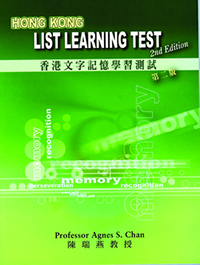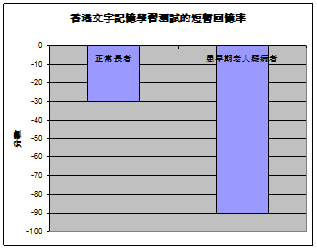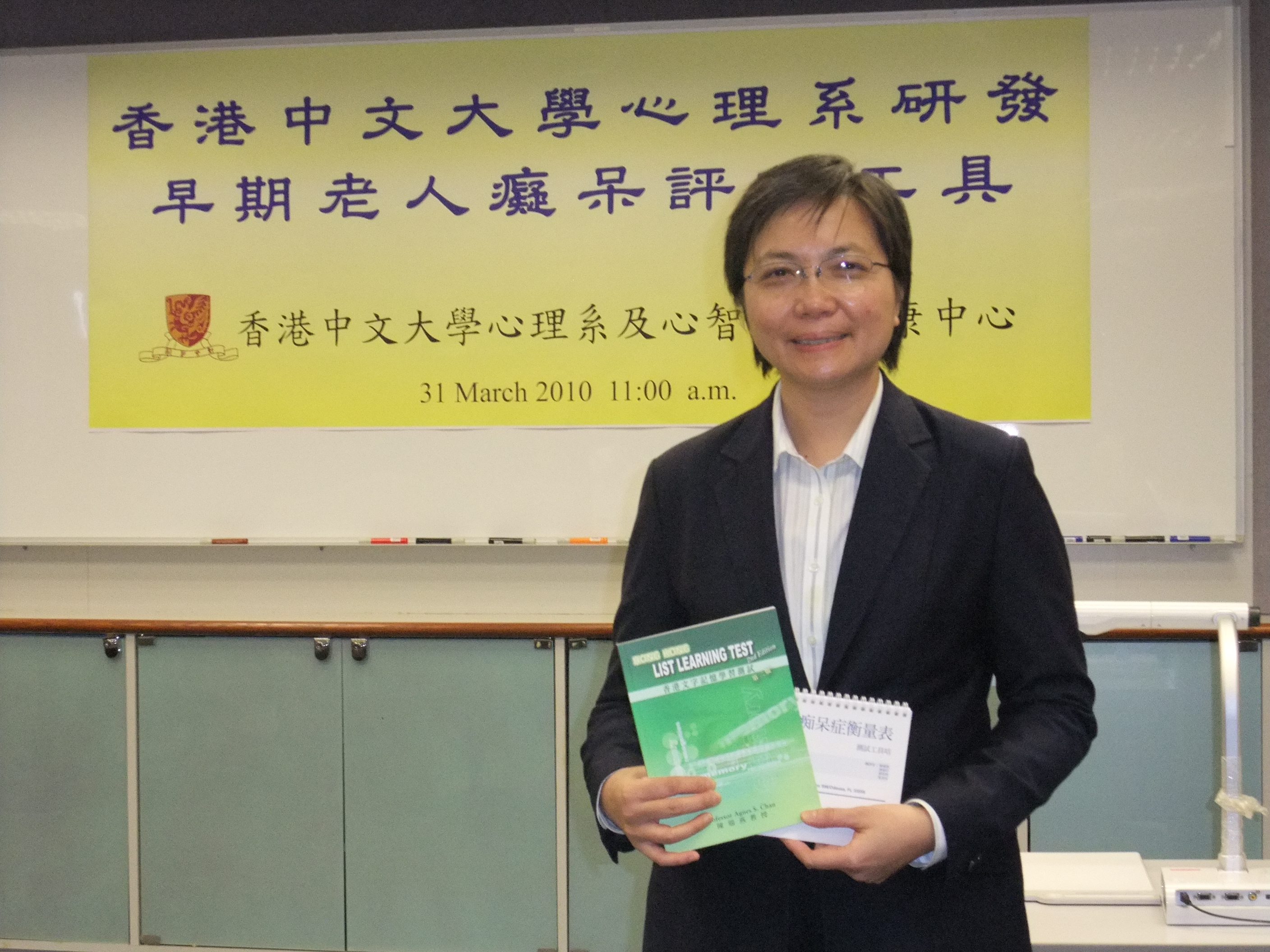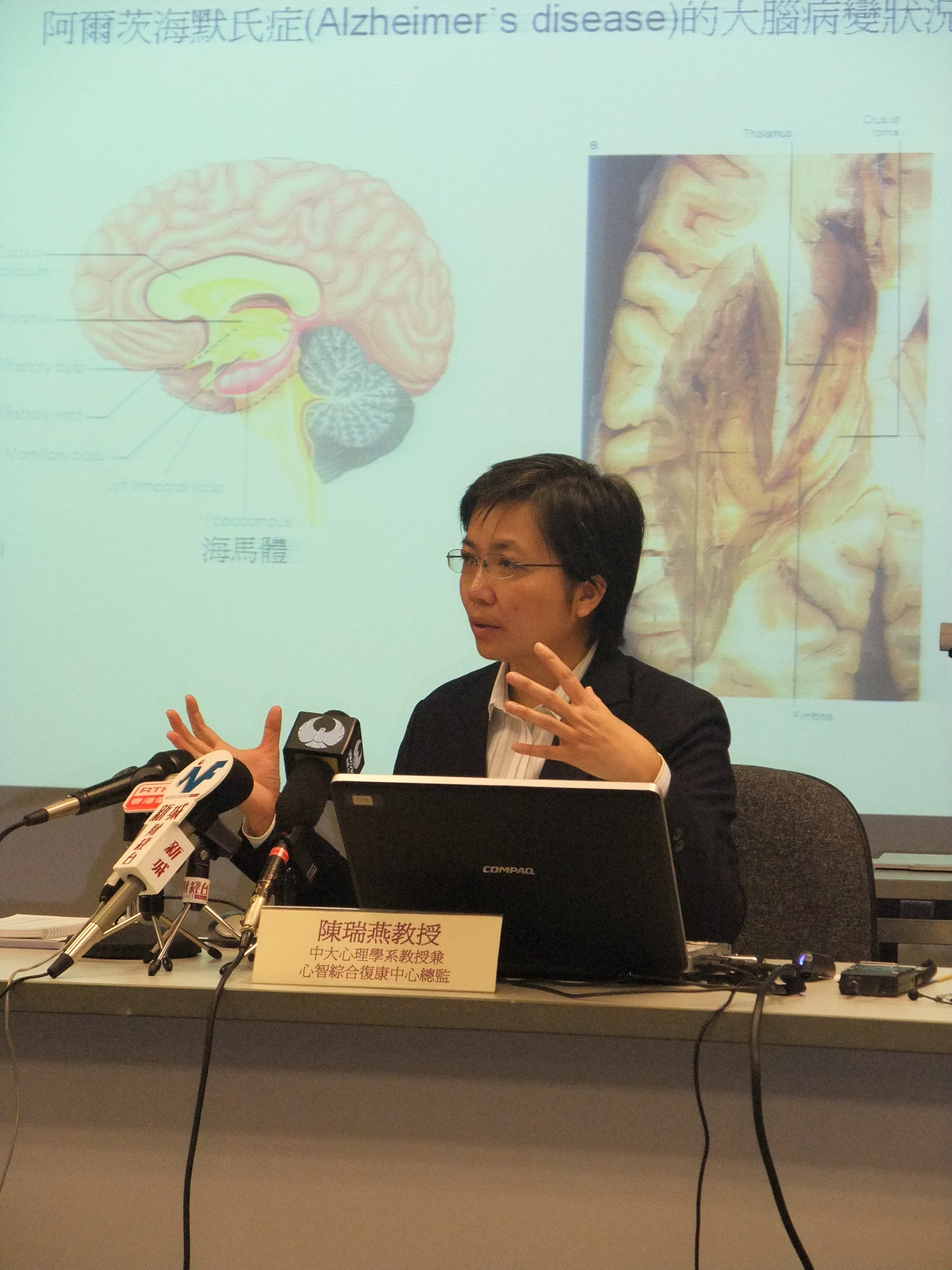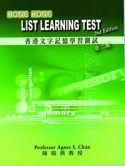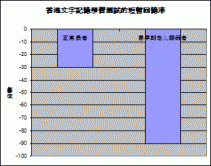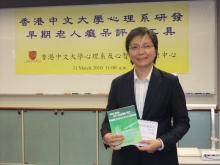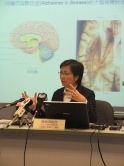CUHK
News Centre
CUHK Psychology Department Develops Assessment Tools for Diagnosis of Early Dementia
In Hong Kong, four in 100 citizens over 65 years old are suffering from Dementia and the ratio goes up with age. A symptom of early stage of Dementia with Alzheimer’s type is the deterioration of ‘recent memory recall’. Although such decline in memory performance differs from forgetfulness in normal aging, it is often difficult to differentiate early stage of Dementia with Alzheimer’s type from normal aging memory loss simply by observation or clinical interview. Thus, many do not get proper diagnosis until symptoms of middle to late stages of Dementia become obvious, such as emotional instability, and the impairment of cognitive functions (i.e. loss of direction, language problem, recognition of friends and family).
Clinical Neuropsychological Assessment has been recognized as a validated and sensitive assessment for diagnosing early Dementia, with an accuracy rate of above 80%. However, there has been a lack of culturally valid diagnostic tools for the Chinese population. Prof. Agnes Chan, professor at the Department of Psychology and director of Integrative Neuropsychological Rehabilitation Centre of The Chinese University of Hong Kong (CUHK), has over 10 years of experience working at the University of California Alzheimer’s Disease Research Center. She has been conducting vigorous research to establish a set of culturally relevant assessment tools for the locals since her return to Hong Kong in 1997. Among them, the Hong Kong List Learning Test (HKLLT) is found to be effective in differentiating individuals at the early stage of Dementia with Alzheimer’s type (See Figure 1).
The HKLLT is the only memory assessment tool developed by local scientists, especially for the Chinese population. Its validity and reliability are supported by over 10 years of research. This assessment has been used for researches published in international journals such as Nature, Archives of Neurology and Cancer, etc. The HKLLT is one of the most commonly used memory assessment tools in major public hospitals in Hong Kong, and it can reliably differentiate elderly citizens suffering from early Dementia from the normal population. The person being assessed is required to learn a list of words three times, and then recall the words twice at the 10-minute and 30-minute intervals. Normal elderly persons can recall up to 70% of the learned material. In contrast, those in early stage of Dementia can only recall around 10% (see figure 2). The accuracy rate of HKLLT in differentiating early stage of Dementia with Alzheimer’s type from normal elderly is above 80%.
In addition, CUHK has gained from PAR Inc. permission to publish a Chinese version of the Dementia Rating Scale (DRS), another widely used assessment tool for diagnosing Dementia in the United States. Prof. Agnes Chan has conducted research comparing its validity for clinical use on the Chinese population and found that there were substantial cultural differences. Thus, using a western assessment tool on the Chinese population without making necessary cultural and language modifications is inapplicable. Professor Chan conducted research to establish a locally valid normative data. However, the DRS is not as sensitive as the HKLLT in differentiating early stage of Dementia.
In summary, HKLLT and DRS are two clinically effective tools for the assessment of Dementia. The HKLLT has been proved to be effective in detecting early Dementia with Alzheimer’s type, whereas DRS is used to assess moderate to late stages. The validity and reliability of the two assessment tools are supported by scientific research and vigorous clinical evaluations. Trained professionals in medical service such as clinical psychologists and occupational therapists are qualified users of the tools, and these tests are available in most public hospitals. Cautions shall be taken against methods which claim to identify Dementia but lack scientific researches to support their validity and reliability.


